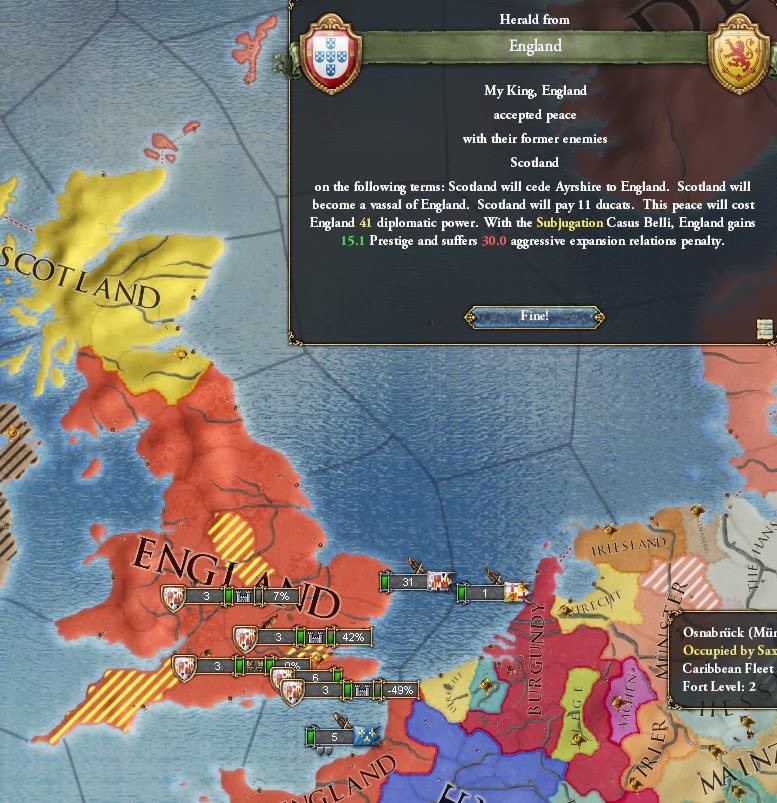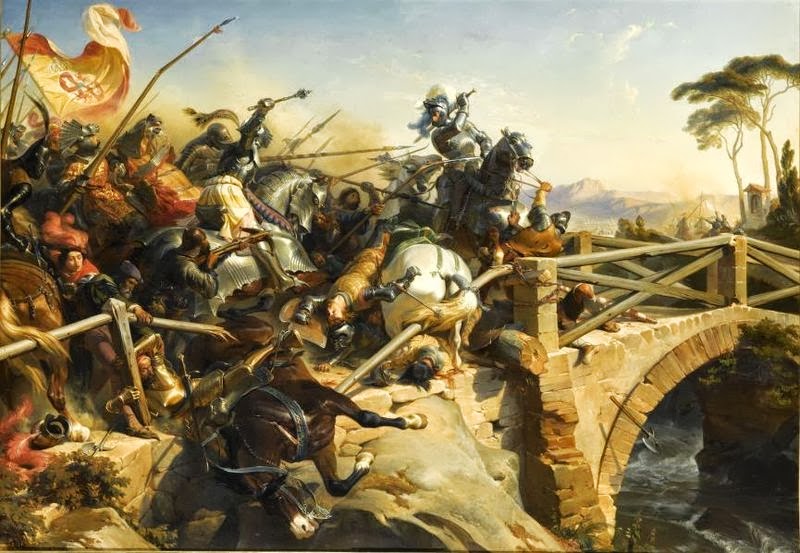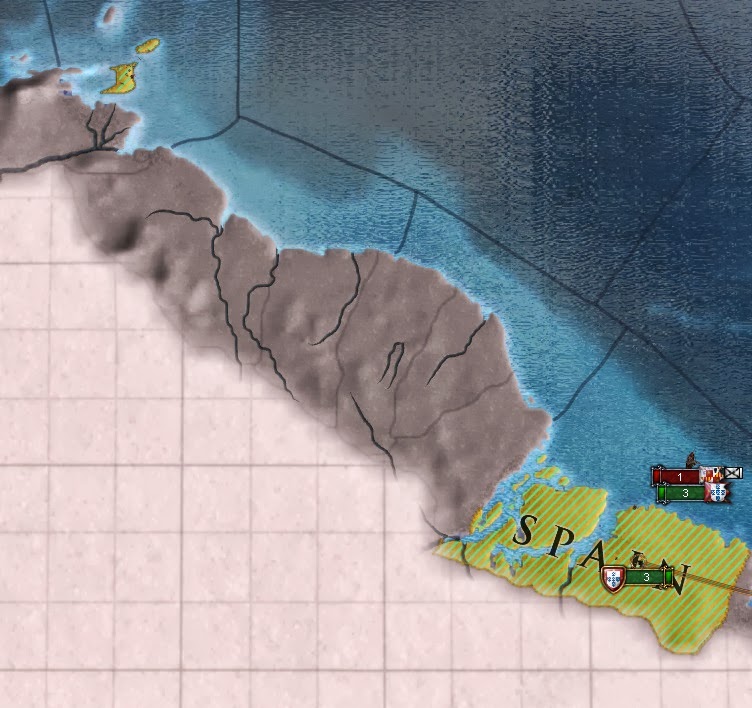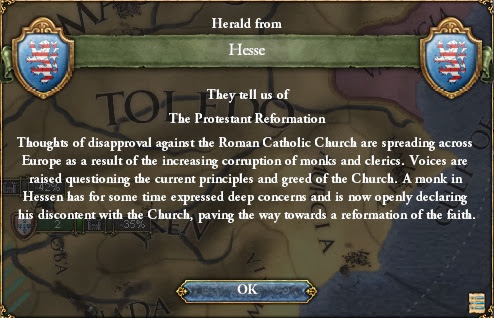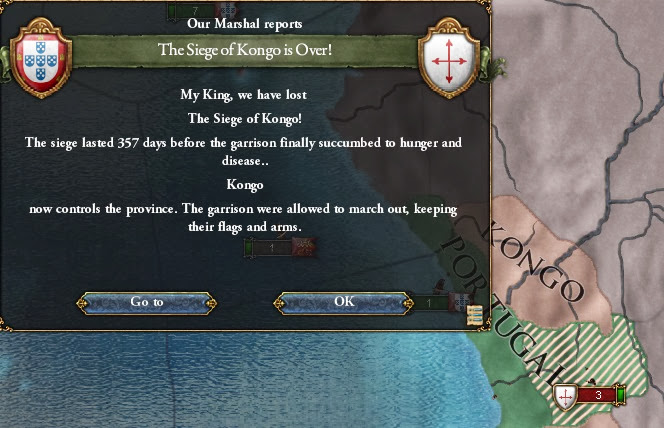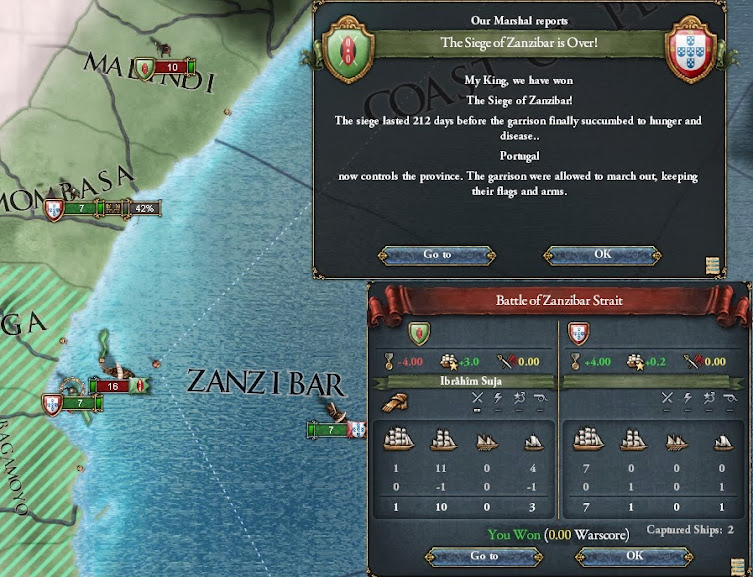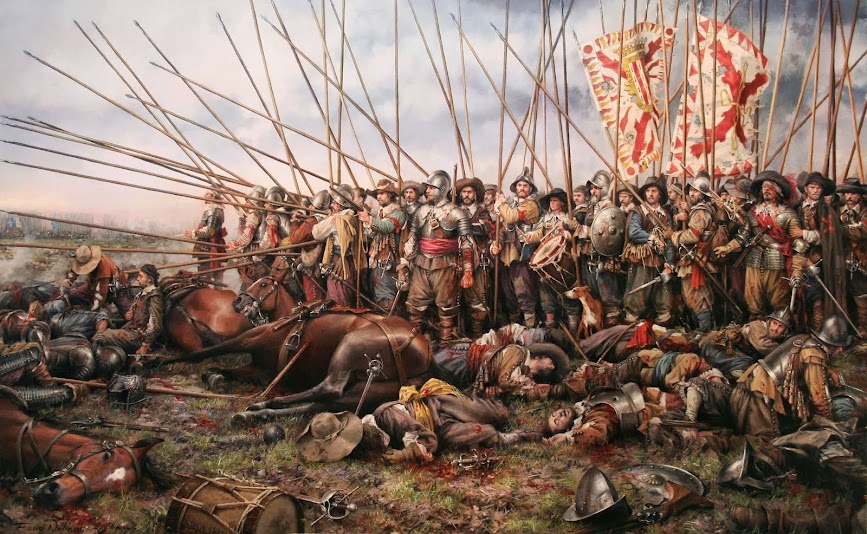Stabbing Spain in the Back
Preparations for War
The claim on Andalucia was received in September 1495. But the war could not start that easily and so soon. Main reason- Portugal had no troops in Portugal. 7000 Portuguese were on the other end of the world. One army had been sent to Inhambane in order to prepare for the attack on Zanzibar and now had to be shipped back. That alone is time-consuming. To make matters worse, André de Guimarães, a military genius that had helped Portugal throughout all the recent wars and who was revered all over Europe, died in October 1495, just a month after the preparations begun.
Also in October 1495, Filipe I broke the alliance with Spain, claiming that recent conflicts over the Andalusia had made it impossible for two nations to remain on such friendly terms. But now, Portugal had another problem- they were friends with Spanish and English. Meaning that the list of potential allies was zero. You cannot ally with Spain if you plan to declare war on Spain. And you cannot ally with England who already is at war with Spain.
Even if it was an option, England is doing really badly. Spain controls Gascoigne and Spanish forces are swarming over the British Isles, looting and pillaging with no Englishman left to stop them. Spanish fleet controls the coast of England and basically, England is in ruins. But it also means that Spanish fleet is away and so is most of their armies.
Spanish forces in England in 1495. By the time the Portuguese-Spanish war begin, the situation was even worse
Filipe I was a pragmatic man. He understood that Portugal was not as loved in Europe as she could be and there wasn't a force nearby that would care enough to send their soldiers to die for Portugal. But, there was another thing- he understood that Spain was even less popular and there would be rulers who really really disliked the Iberian giant. So, he looked around and found that a military coalition against Spain was already there. Even better, the French were the ones responsible for it. Portugal happily joined and with the pact formed between Filipe I and Louis XII de Valois, the good relations between two nations begun.
The War Begins
In December 1496, Portugal was finally ready. Filipe had 19 000 troops ready in mainland, 3000 ready in Caribbean and 2000 still recruiting. The coalition with the French was firm. So, to celebrate the passing of the new year, the Portuguese declared war on Spain, claiming the province of Andalusia. Portuguese troops marched to Andalusia and started siege of the province there. Not a Spaniard in sight.
The first battle of the war was actually fought in Bearn. 16 000 French attacked 11 000 Spanish. It was a tough fight, but in the end, French superiority in numbers and in leadership won. Their army, lead by Louis XII himself, managed to break the Spanish lines and forced the enemy to flee for their lives.
Long live the Coalition!
Meanwhile, Felipe sent a small army, with cannons and infantry, to siege Cadiz and Portuguese fleet took up blockading positions near the southern part of Spain. Since Filipe knew there was a powerful Spanish fleet lurking around somewhere, he decided not to move too aggressively and try to blockade most of Spain. In sheer numbers, the Spanish fleet was superior to Portuguese one, after all.
Battle of Jaen
Spanish fled for their lives and they kept on fleeing until they had arrived in Southern Spain. Filipe ordered Portuguese to leave a siege force behind in Andalusia and marched to meet them. Outside of Jaen, the three armies met.
The Spanish were tired and demoralized, but so were the French. Portuguese were the only fresh troops left. The battle was still commanded by the French King though. Spaniards had put their troops in highly defensive location- troops of the coalition had to cross the river and fight in the mountains. The bridges were defended by Spanish and there was no large ford nearby, so the coalition was in trouble.
It was 15th April in 1497 when the coalition attacked. Portuguese troops were leading the way, their longbowman showering the Spanish with arrows. That weakened the poor Spanish enough and then, the French man-at-arms charged the bridges. With pure elan, they pushed through and defeated the Spanish defenders. The Coalition was on the other side of the river, but Spanish had defended a good defending position up the hills nearby. There was only one problem- the Spanish had nowhere to run. Still, the fighting was over for the day- both sides needed to gather their strength and the night was already coming.
Spanish defending the bridge
In 16th April, the Portuguese once again started with hail of arrows against the Spaniards. With some arquebusiers adding to the fray, the Spaniards were demoralized, surrounded and outnumbered. They dropped their weapons and tried to flee- but there was nowhere to flee. The whole Spanish army was slaughtered that day and in Battle of Jaen, Portugal and France had won the war.
The battle
The Sieges
After Jaen, Iberia was quiet, with only Portuguese cannons slowly chipping away the defences of the city. Andalusia, Cadiz and Cordoba were under siege in mainland and 2000 soldiers were sieging Canary Islands. Andalucia herself fell in November 1497. By January 1498, Portugal had taken control of both Spanish colonies in the New World. Trinidad and Grao Para. Felipe decided to expand the sieges a bit more- Badajoz and Granada were also sieged now. Cadiz fell in May 1498, after 511 days of siege. In July, Canaries fell, but Portugal was not doing good. Filipe had to take a loan of 107 ducats to finance the war.
War in South America
Battle of Gibraltar
In June, there was news that Spanish fleet had was spotted near Portuguese coast and that they were sailing towards Gibraltar. Portuguese ships scuttled to ports, for the Spanish Armada was overwhelming. It also meant that sieges would become slower and that Portuguese could not effectively blockade the Spanish coast.
Portuguese fleet in harbour, preparing for the battle
In desperation, Portugal attempted to stop the Spanish fleet. In September, Portugal attacked Spanish in Gibraltar. Seven early carracks, fourteen Barques and one Galley (captured from Aragon) against full might of Spanish fleet. Though the Portuguese were outnumbered, they managed to inflict heavy damage to Spanish fleet before retreating. Sure, Portuguese lost the battle, but they did not lose any ships and forced the Spanish fleet to retreat to port for repairs.
That did not go that well...
End of War
When Granada fell in January 1499, the war was over. Spain was forced to give up the jewel of their crown, province of Andalucia and the rich city of Seville to Portugal. In addition, Grao Para from Brazil was asked and Spanish had to pay whopping 23 ducats. The Spanish had gained Gascoigne from English, but had lost one of the richest provinces they ever had.
Yay! We have won
Portugal now had really firm grasp of the Sevillan trade node. When the Portuguese fleet had recovered from battle of Gibraltar and started the patrols of the node again, their share in Seville was higher then ever before. Money was slowly flowing into Portuguese coffers. Owning a rich province like Andalusia of course helped as well.
The trade in Seville
Oh, and during the war, Portuguese did not forget their colonization efforts. They moved deeper into the Caribbean, colonizing the province of Jamaica in February 1497. Also, a new explorer was recruited. Andre de Oliveira was tasked with exploration of the Caribbean, though he also was a leader in the Battle of Gibraltar. He explored the western part of the sea, discovered a nation called Aztecs and also explored North American coastline.
Reformation
While Portugal and Spain were busy at each others throats, somewhere in Germany, some kind of monk god fed up with good like and declared that the Pope is evil and all that. Somehow, this started the Protestant movement. That was not concern of Portugal at the moment though- sure some strange German monks with weird ideas do not affect the Kingdom of Portugal, so far away from Iberia?
The Catholic Faith is not that unified anymore


